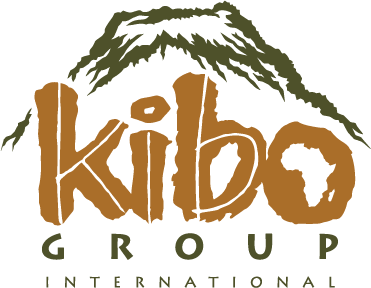We’ve got questions, she’s got answers. Meet our new staffer, Suzan Keddi.
Kibo hired Suzan Keddi last month to help expand the curriculum and reach of the Healthy and Safe Kitchens program. She’s cool. Get to know her!
What is your family like?
I’m a mother of of two children, a boy and girl, that is Abigail and Benjamin. I was born in Jinja. I think I can say that Jinja is a home for me. I’m not a Musoga, but I was born in Busoga.
What do you like about Jinja?
Jinja as a town is very cool. Most of my friends are in Jinja. We grew together since childhood. The place is very welcoming.
What was your job before you came to Kibo?
Before coming to Kibo, I was working in a rehabilitation center. I was working with vulnerable children, mainly the street children, and I was a house parent taking care of them. And most of my time I was counseling them on a daily basis. I wanted to see that they were united back, taken back to their parents instead of living on the streets. Sometimes I meet them on the street [when they are in town], and they are so happy for what I did for them.
What attracted you to social work?
I always felt bad to see people suffering. Since childhood, that thing has always been in my heart. I have a helping heart. So when I grew up, my parents suggested, “I think a wonderful profession you can go for is social work,” and that was what I wanted. And I’m so happy I got that profession as a social worker.
How did your background in social work prepare you for your job with Kibo?
Social work is so wide. Sometimes you find yourself placed in a hospital as a social worker. You can work like where I used to work with children. You can even find yourself working in the community, in the rural areas. Generally the whole social work focus is on people, the well-being of people — how you can help them to come out from the problem they have and come to a better life.
What made you want to work for Kibo?
I wanted to go deeper, to meet the poor people in the village, and see how I can help them come out from the bad situation, at least to make them happy, feel loved. When I saw the kind of work Kibo is doing, I really piqued much interest, because that was one of my main [passions] that I’ve always been dreaming of, working with the most vulnerable people, the poor people. I thank God it came true.
How have your first few weeks with Kibo been so far?
I’m so grateful to have joined the team. Everyone is so special. Everyone is so welcoming. They showed me a very welcoming heart. They are guiding me. What I don’t know they explain, they show me. That’s one thing I’ve learned from Kibo — the unity.
What are some of your favorite parts about the Healthy and Safe Kitchens program?
The Healthy and Safe Kitchens program focuses on the kitchen, how these community members can come out of the old method of using the three-stone, open flame. After teaching them the dangers, they come to realize the benefits, the importance of having an energy-saving stove. It avoids them from getting so many problems like the children getting burnt, inhaling smoke, and also it maintains hygiene in the home.
What is your relationship with God like?
Wow, that is very, very, very, important because without God nothing is possible. You have to put God first before anything because every day you wake up, you have to ask him for guidance, protection. We have to praise him, we have to thank him for each and every thing that he has done, for the gift of life that he gave us.






